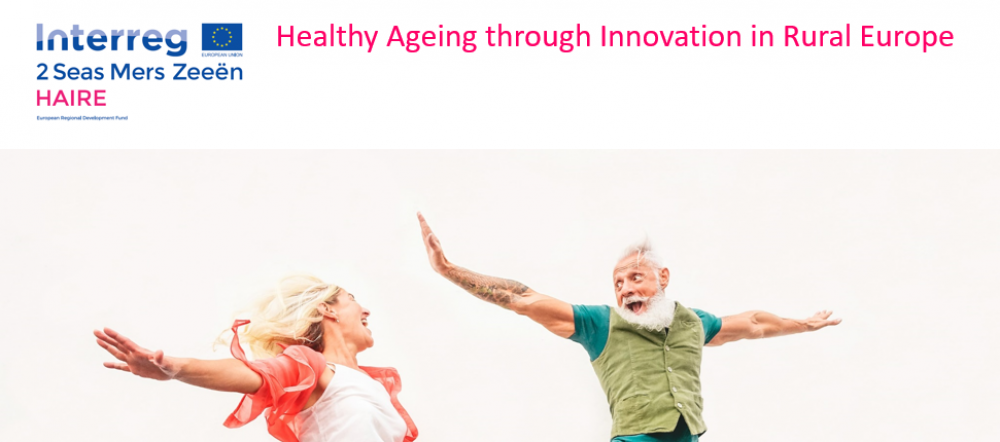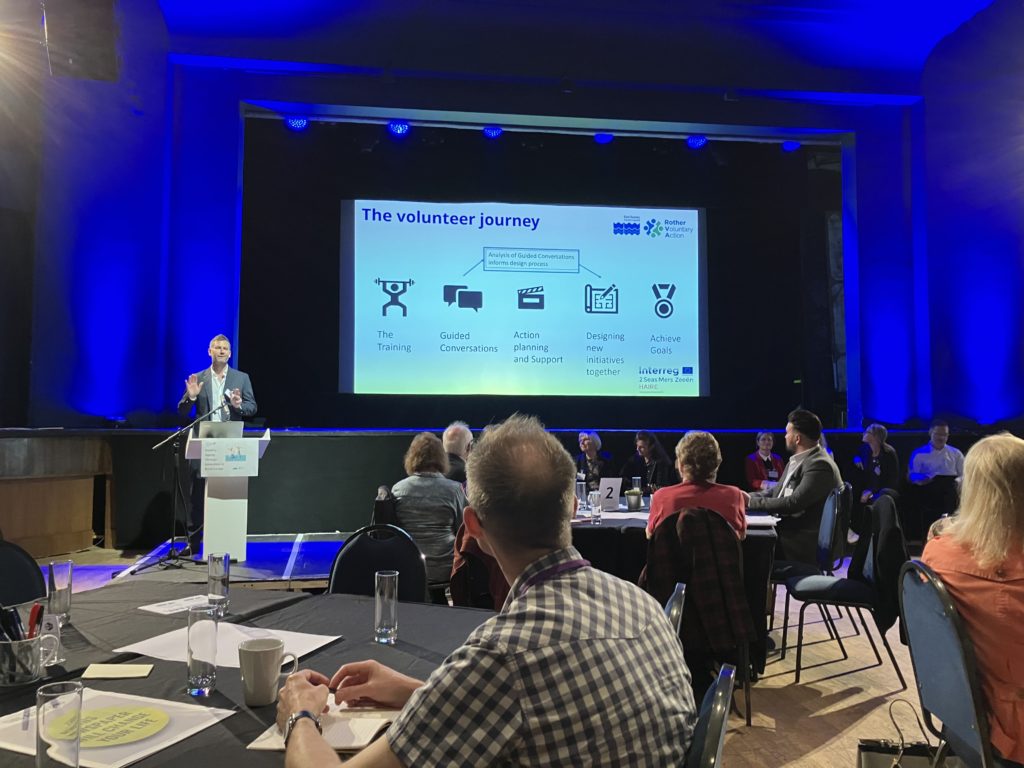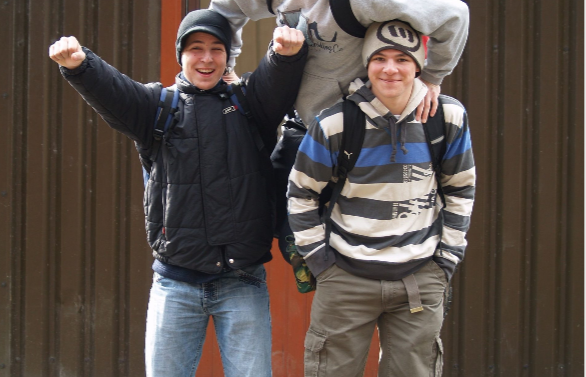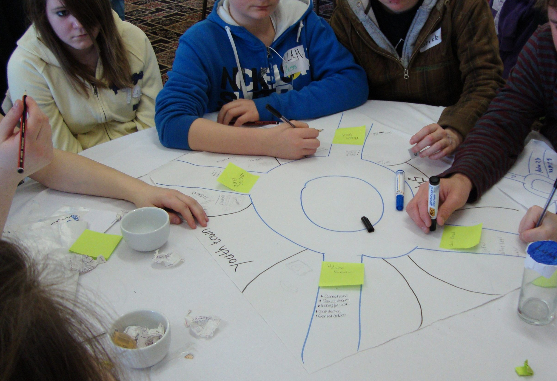
View from the De Warr Pavilion
19th October 2022 saw our colleagues at Rother Voluntary Action and East Sussex County Council hold a Healthy Ageing social innovation workshop at the De Warr Pavilion in Bexhill-on-Sea. The conference brought the community up to speed on what the team has achieved so far through HAIRE. It was a thought provoking day, with our partners not only sharing innovations devised so far, but also brainstorming with the community about new place-based innovations for healthy ageing.
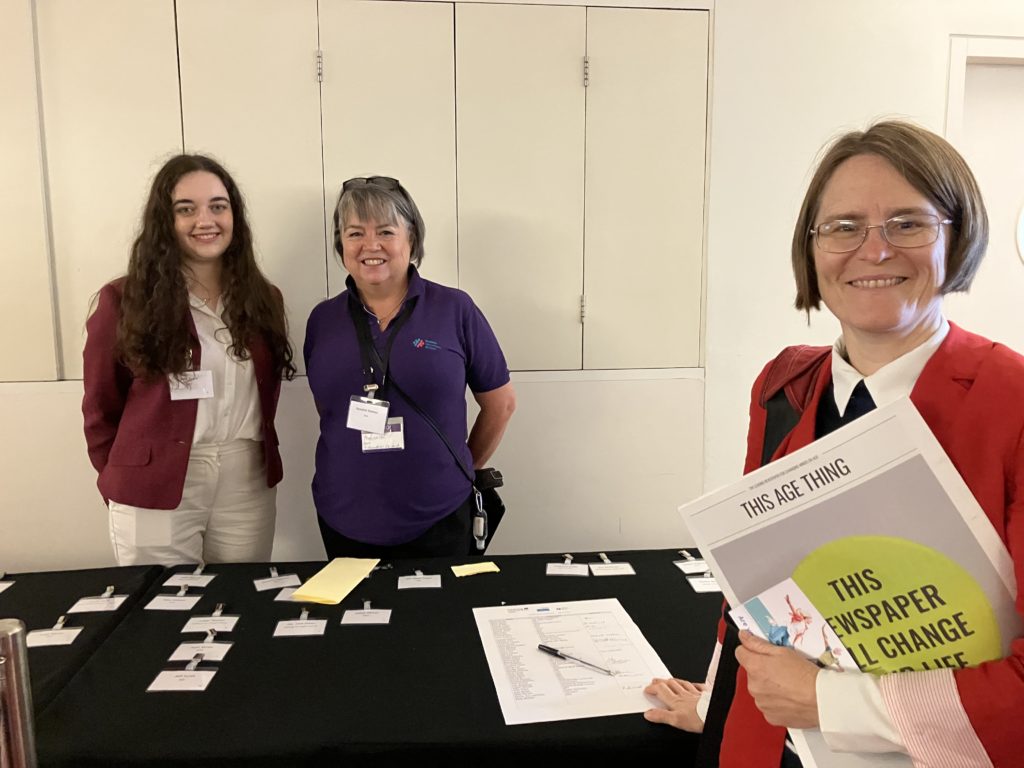
HAIRE’s PI Catherine Leyshon with colleagues from Rother Voluntary Action
Collaboration between VCSOs, public and private sector and older people continues to lie at the heart of much-needed changes to the design and delivery of services, and it was exciting to see so many people present who were clearly committed to improving the lives of older people. From the start, there was a lot of energy in the room, and there was a very high level of interaction and ideation throughout.
Four key themes emerged from the HAIRE project’s Guided Conversations and form the basis for innovations in Rye and Robertsbridge and beyond: Loneliness and Isolation; Transitions and Life changes; Planning for the Future and Staying Active.
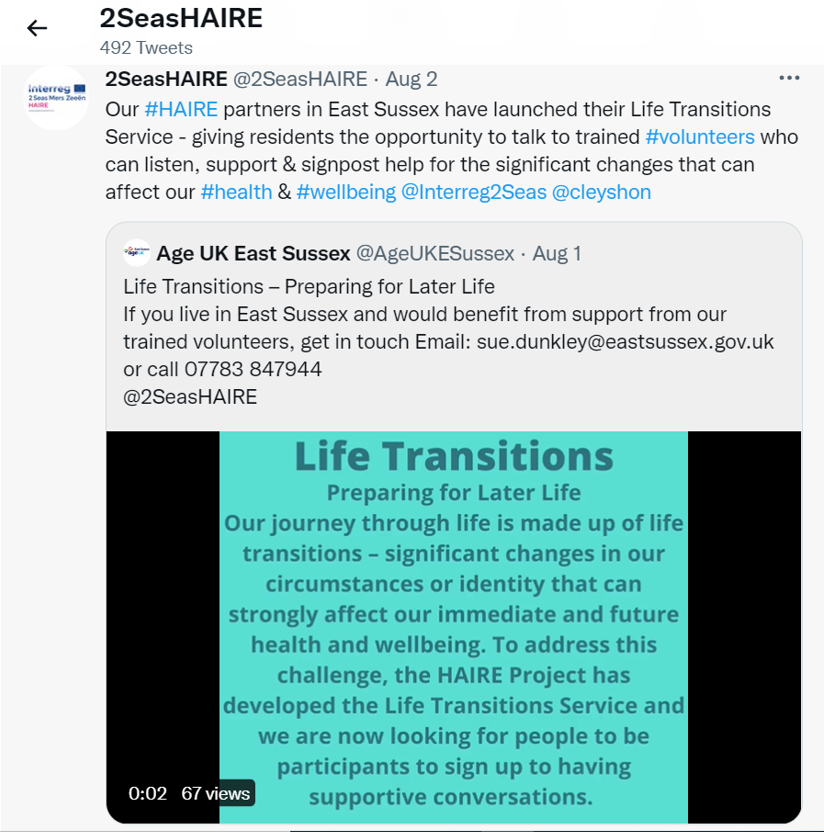
The Life Transitions Service pilot was launched in summer 2022
One result (that crosses multiple themes, in fact) is the team piloting a “Life Transitions Service.” This has, at its heart, the simple truth that the further ahead you can plan, the better the outcome. The Guided Conversations showed that sometimes, the decisions people make when moving to rural areas are not always ideal, as they can fail to take their ageing needs and later life changes into account – and end up encountering loneliness, isolation and other difficulties.
The aim of the service is to help people arrive in later life as prepared as they could be, and to provide a listening ear and a signposting service to help individuals make important decisions that can help make a positive impact on later life. Volunteers have been recruited and trained in using the approach as an example of a new model of service focused on prevention. The volunteer model for the Life Transitions service is being rolled out next year, and the team are considering ways to extend the service beyond their local area.

Designers were asked: How might we create joyful place-based opportunities for people across generations to improve planetary health?
Another innovation scheme in progress is the RSA/HAIRE Design Competition. The RSA – the royal society for arts, manufactures and commerce – is all about social impact, and the competition includes factors that go beyond personal, social and community issues. The partnership came up with a competition for design students to combine planetary health and ways to work intergenerationally to inspire healthier communities.
Winning designs will be tested in the summer of 2023, and included in the Age Friendly programme to ensure a long-lasting legacy. In parallel, there will be a community design competition, which was kicked off at the workshop: “How might we create fun opportunities in local communities for younger & older people to come together and improve each other’s health & the health of the planet?” All sorts of ideas were mooted: from Ready, Steady, Cook at the local food bank to a rickshaw club for greener, healthier, intergenerational transport.
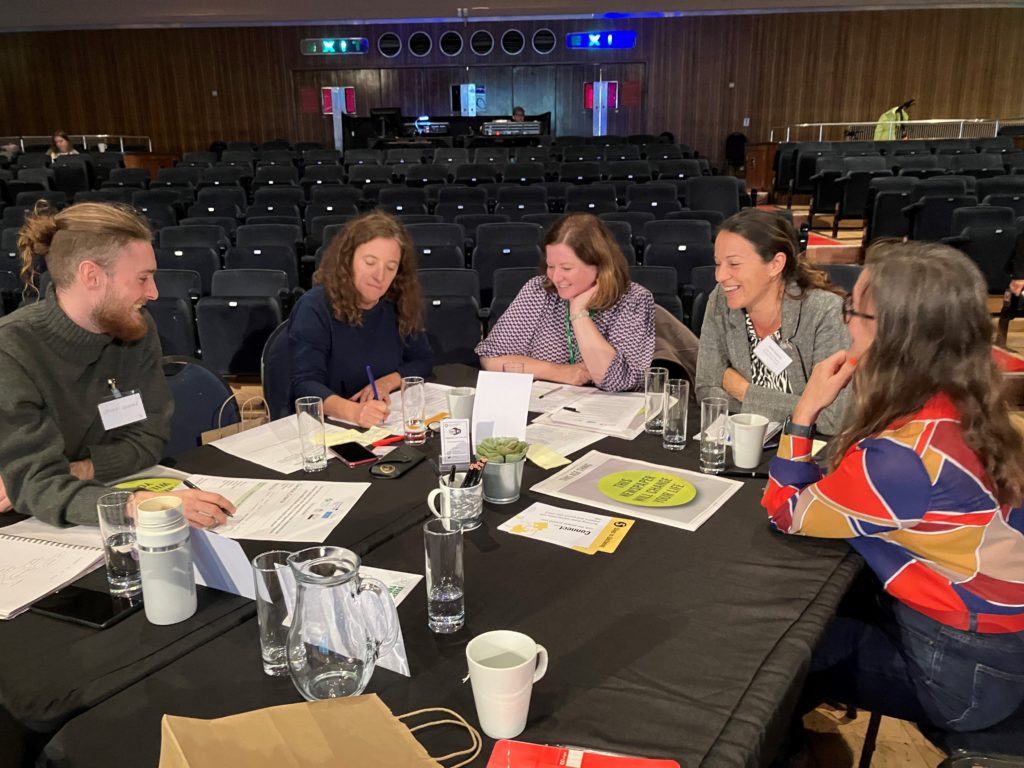
Kudos to product design student Jacob, who travelled down from Loughborough to hear all about HAIRE in order to better shape his design team’s submission.
Regarding strategic, system level innovation, East Sussex continues to develop a formal ‘age-friendly community’. The Guided Conversation analysis illustrated the multi-dimensional and interconnected dimensions of ageing well, which prompted the need for a holistic system response. The team (ESCC and RVA) worked with Rother District Council – who are an official observer partner – to write an application to join the UK arm of the World Health Organisation’s Age Friendly Communities programme, as their approaches and domains of interest are well-aligned. The application was approved by the Rother District Council Cabinet and then by the Centre for Ageing Better, who run the UK AFC Network. The HAIRE Project collaborated with Rother District Council, local volunteers, and other stakeholders to develop the local AFC programme, holding a visioning workshop with key councillors and other local stakeholders to identify and agree priorities. These were presented and discussed at the conference, which finished on a futuristic note and a brainstorming session creating innovations 50 years into the future.
It was an inspiring day!
“It was great to bring aspects of the HAIRE partnership together and highlight the wider dimensions of the project. Our aim was to focus on the innovations to boost the momentum around Healthy Ageing going forwards and to set out the HAIRE legacy.” – Paul Bolton
